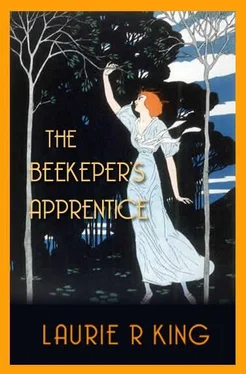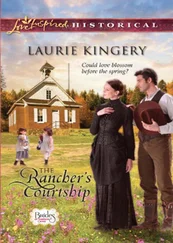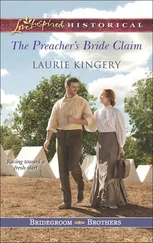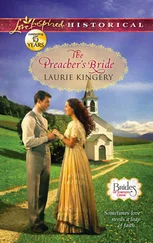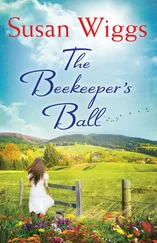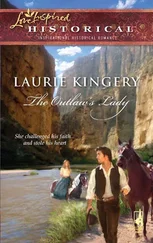Laurie King - The Beekeeper's Apprentice
Здесь есть возможность читать онлайн «Laurie King - The Beekeeper's Apprentice» весь текст электронной книги совершенно бесплатно (целиком полную версию без сокращений). В некоторых случаях можно слушать аудио, скачать через торрент в формате fb2 и присутствует краткое содержание. Жанр: Триллер, Классический детектив, на английском языке. Описание произведения, (предисловие) а так же отзывы посетителей доступны на портале библиотеки ЛибКат.
- Название:The Beekeeper's Apprentice
- Автор:
- Жанр:
- Год:неизвестен
- ISBN:нет данных
- Рейтинг книги:5 / 5. Голосов: 1
-
Избранное:Добавить в избранное
- Отзывы:
-
Ваша оценка:
- 100
- 1
- 2
- 3
- 4
- 5
The Beekeeper's Apprentice: краткое содержание, описание и аннотация
Предлагаем к чтению аннотацию, описание, краткое содержание или предисловие (зависит от того, что написал сам автор книги «The Beekeeper's Apprentice»). Если вы не нашли необходимую информацию о книге — напишите в комментариях, мы постараемся отыскать её.
The Beekeeper's Apprentice — читать онлайн бесплатно полную книгу (весь текст) целиком
Ниже представлен текст книги, разбитый по страницам. Система сохранения места последней прочитанной страницы, позволяет с удобством читать онлайн бесплатно книгу «The Beekeeper's Apprentice», без необходимости каждый раз заново искать на чём Вы остановились. Поставьте закладку, и сможете в любой момент перейти на страницу, на которой закончили чтение.
Интервал:
Закладка:
During this dreamy time I had the feeling that we were being observed, if not judged, though I could never decide if someone was testing our abilities, or waiting for a job to appear that we were suited for. In either case, perhaps even coincidentally, a case abruptly appeared to immerse us and shore up our sagging self-confidence with the sharp exhilaration of danger and the demands of an uncomfortable way of life. I soon discovered in myself a decided taste for that way of life, as the sense of daring that the tamer liberty of Wales had given me flowered into a pure, hot passion for freedom. If Mycroft's hidden purpose was to provide us with an exotic form of holiday, it certainly succeeded.
Not that we were under his control, or even supervision: Mycroft's name opened a few doors for us and smoothed some passages, but travelling under his cachet did not mean that we were under his protection. Indeed, our pursuits in the Holy Land took us into some quite interesting situations. However, the dangers we faced (aside from the microbial and insectoidal), although immediate and personal (particularly for Holmes, who at one point fell into unfriendly hands), were also refreshingly direct and without subtlety.
Both of us took injuries, but neither seriously. Indeed, other than being shot at by a strikingly incompetent marksman out in the desert and later set upon by thugs just outside the Church of the Holy Sepulchre, my own most uncomfortable moment was when I was cornered by a trio of amorous and intoxicated merchants in the Arab Quarter.
Even the revelation of the quantity of hair beneath my turban did not give them much pause, as they seemed equally willing to pursue a woman as the young man they had thought me. I nearly committed murder that day — not on the merchants, but on Holmes, for the highly amused reluctance with which he came to my assistance.
As I said, I found this combination of unreality and hazard immensely appealing, and indeed it gave me a lasting taste for what is called Intelligence (which is not to be confused with Wisdom, being, in fact, often completely devoid of sense). At the time all I thought about was that we were safe from our shadowy pursuer, and that Mycroft was proving a powerful if enigmatic ally.
This is not the place to burden the reader with a detailed (that is, book-length) account of our expedition to Palestine, for, although it had its own distinct points of interest, it had almost no bearing on the case that had sent us there. It was an excursus, the chief benefit of which was that it enabled us to reconsider the balance in our relationship, and to come to a decision about how our case at home was to be handled, while Mycroft and Lestrade were assembling data for us. That our time of exile changed my life personally, that it endowed me with a sense of the texture of history that has stayed with me to this day, that it moved me to profound wonder and joy and fury, that the sense of Palestine as a refuge made me a Jew more than any one thing apart from the accident of my birth — all these have proven to be of lasting interest to me personally, but of peripheral interest to this particular narrative.
Nor shall I subject the reader to a travelogue of that most remarkable of lands. We stayed for a few days in a mud hut near Jaffa, getting our bearings and perfecting our disguises (which Holmes had used before, in Mecca) before setting off south. We moved into the empty desolation of nomadic peoples and ruined monasteries, where the desert shimmered even in January. We walked and rode across the wilderness to the Salt Sea, and in the dark before the moon rose we floated in its remarkable buoyant waters, and I felt the light of the stars on my naked body. We went north and touched the crumbling remains of mosaic pavements, the delicate stone fishes and twining grape clusters, and walked among the massive remains of temple walls and the more recent remains from Allenby's victories.
We slept under Bedouin tents that stank of goat, in caves cut into the hillsides, on warm, flat roofs under the stars, in feather beds in a pasha's palace, under an Army lorry, under a fisherman's skiff, and under nothing but the sky. We drank cold, sour lemonade with Jews in a Zionist settlement, hot, syrupy mint tea with a Bedouin sheikh, and Earl Grey with tinned milk in the house of a high-ranking Army officer in Haifa. We bathed (far too seldom for my taste — there are drawbacks in being disguised as a male, and one of them is public bathing) in a bubbling spring above Cana of Galilee, in a smooth stretch of the Jordan surrounded by barbed wire (under the disapproving gaze of a kingfisher), and in the tin hip bath of an English archaeologist in Jericho, whose passion for preserving her site was matched only by her extreme Zionism. (She was, incidentally, the only person I have ever met who, seeing me in disguise, knew me immediately and matter-of-factly for what I was. She greeted us with a furious barrage of words from the bottom of her trench, established that we were not about to carry off her beloved potsherds, marched us off to her remarkable home, which resembled a low Bedouin tent made of scrap wood and corrugated iron, and closeted me in a windowless room with concrete walls and an endless supply of gloriously hot water. Holmes she allowed to sluice off under a bucket of cold water in the courtyard.)
We — I — left Jerusalem until nearly the end, circling around it on our way north, coming tantalisingly close twice and shying away, until finally we walked the long dry hills up to the city in the company of a group of Bedouins and their emaciated goats and stood, burnt black and footsore and absolutely filthy (even the normally catlike Holmes) on the crest of Mount Olivet at sundown. There before us she rose up, the city of cities, the umbilicus mundi, centre of the Universe, growing from the very foundations of the earth, surprisingly small, like a jewel.
My heart sang within me, and the ancient Hebrew came to my lips. "Simcfiu eth Yerushalaim w'gilu bah kal-ohabeha," I recited: Rejoice with Jerusalem and be glad for her, all you who love her. We watched the sun set and slept among the tombs overnight, to the consternation of our guides, and in the morning we saw the sun lay tender arms around the city walls and bring her to brilliant, vibrant life. I rejoiced, and I was inexpressibly grateful.
We sat until the sun set the white-gold walls to blazing and dust rose from the road, and we went across and entered the city. For three days we walked her narrow streets, ate food from her bazaars, breathed the incense of her churches. We touched her walls and tasted her dust, and in the end we came away changed, to watch the winter sun relinquish her to the night. We then shouldered our packs and turned our backs on her.
As the sky moved from thick cobalt to limitless black, we walked north, then stopped, made our two fires and pitched our three tents, drew water from a cistern, cooked and ate the inevitable tough goat's meat that seemed to be AH and Mahmoud's staple diet, and drank tiny cups of Mahmoud's coffee, thick as honey and nearly as sweet, which he boiled and poured and we strained through our teeth. The fires burnt low and our guides went to their beds, and in communicative silence Holmes and I respectively smoked and searched for constellations. When the embers had become mere flecks in the blackness, and the vault of the sky was pierced by a million points of hard white light, I was moved uncharacteristically to song, and with the warmth of the fire on the underside of my throat I chanted to the stars the hymns of Exile, the songs distilled from the longings of a people torn from their land, taken from the home of their God, and left to weep within the boundaries of the conqueror, Babylon, a hundred generations ago.
My voice fell silent. On a distant hilltop jackals set up theit eerie chorus of yelps. Somewhere an engine rose, faded. A cock crew. Eventually, filled with that serenity that comes only with a decision reached or a task well completed, I rose to go to my tent. Holmes stretched out to knock his pipe bowl into the fire. "I must thank you for bringing me here, Russell. It has been a most instructive interlude."
Читать дальшеИнтервал:
Закладка:
Похожие книги на «The Beekeeper's Apprentice»
Представляем Вашему вниманию похожие книги на «The Beekeeper's Apprentice» списком для выбора. Мы отобрали схожую по названию и смыслу литературу в надежде предоставить читателям больше вариантов отыскать новые, интересные, ещё непрочитанные произведения.
Обсуждение, отзывы о книге «The Beekeeper's Apprentice» и просто собственные мнения читателей. Оставьте ваши комментарии, напишите, что Вы думаете о произведении, его смысле или главных героях. Укажите что конкретно понравилось, а что нет, и почему Вы так считаете.
